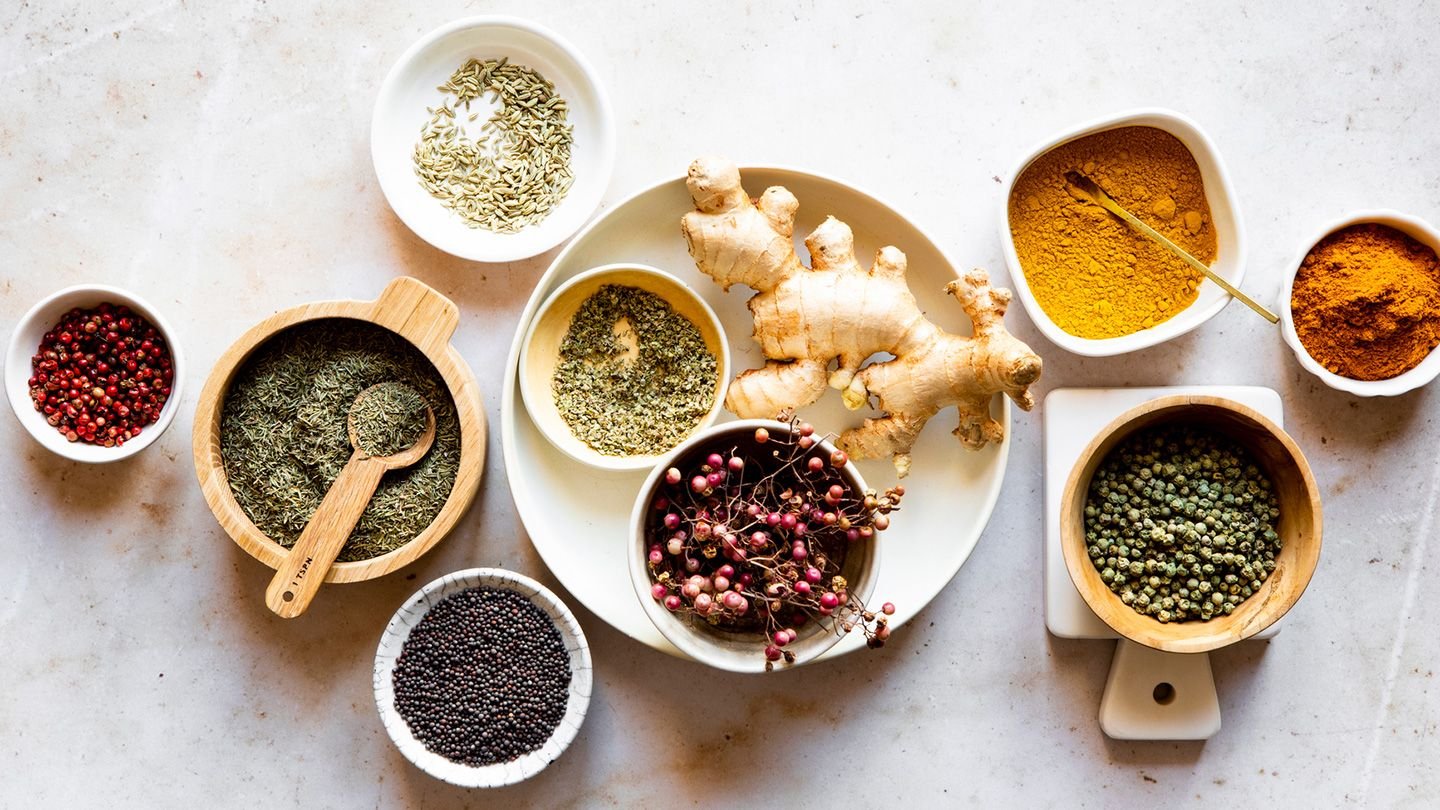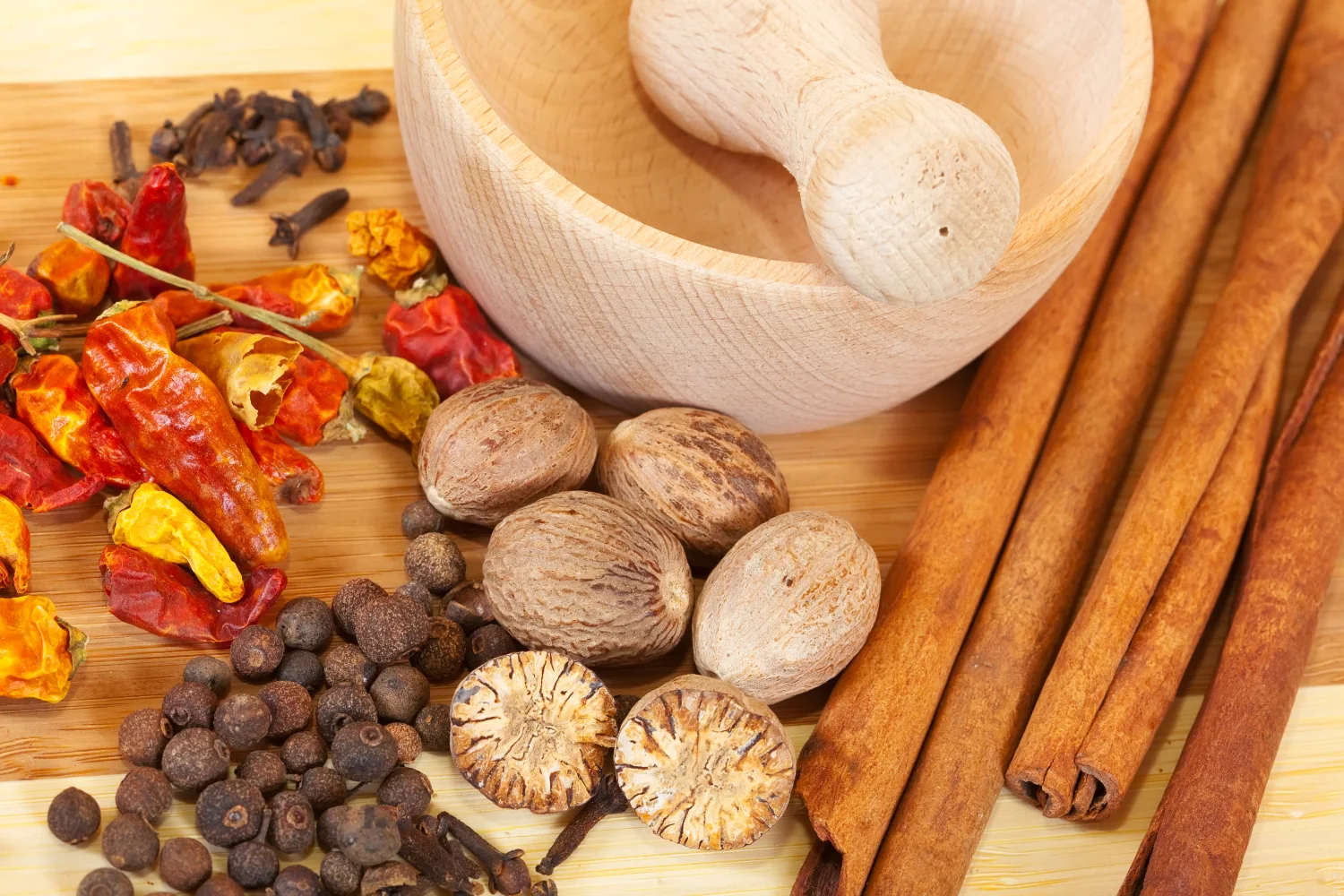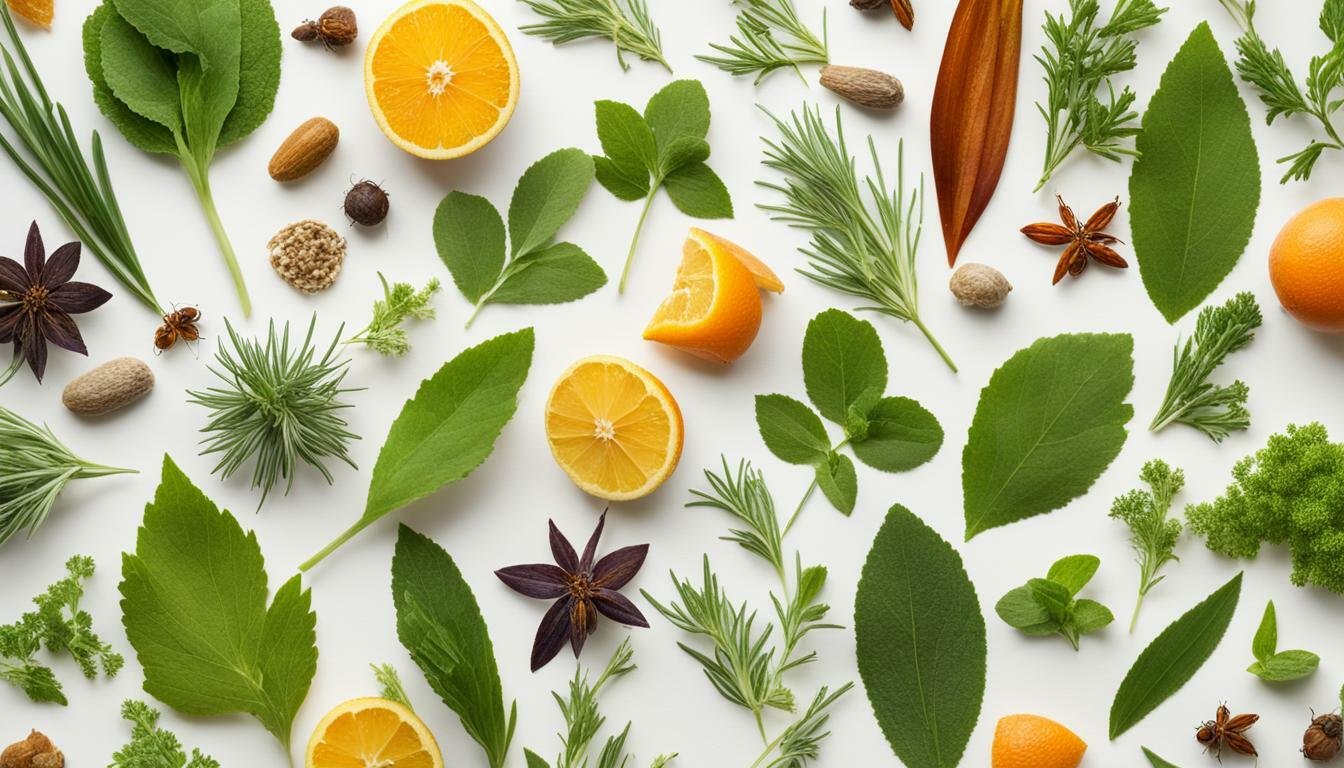Herbs to Lower Blood Pressure
High blood pressure, or hypertension, affects a significant portion of the population and is a major risk factor for heart disease. While medication is commonly used to manage high blood pressure, certain herbs and spices may also have the potential to lower blood pressure naturally. Five herbs that may help lower blood pressure include basil, parsley, celery seeds, Chinese cat’s claw, and Bacopa monnieri. These herbs contain compounds that can potentially relax blood vessels, reduce blood clotting, and aid in blood flow. However, more research is needed to determine their effectiveness in humans. It is important to consult with a healthcare provider before incorporating any herbs into your routine.
Key Takeaways:
- High blood pressure is a significant health concern and a major risk factor for heart disease.
- In addition to medication, certain herbs and spices may have the potential to lower blood pressure naturally.
- Basil, parsley, celery seeds, Chinese cat’s claw, and Bacopa monnieri are five herbs that show promise in reducing blood pressure.
- These herbs contain compounds that can relax blood vessels and improve blood flow.
- Consulting with a healthcare provider is crucial before incorporating any herbs into your routine.
Understanding High Blood Pressure and its Risks
Before exploring the herbs that can help lower blood pressure, it’s important to understand what high blood pressure is and the risks associated with it. High blood pressure, also known as hypertension, is a condition where the force of blood against the walls of your blood vessels is consistently too high. This can put strain on your heart and blood vessels, increasing the risk of heart disease, stroke, and other serious health complications. Managing high blood pressure is crucial to maintaining good cardiovascular health. One key measurement used to diagnose and monitor high blood pressure is the diastolic blood pressure, which represents the pressure in the arteries when the heart is at rest between beats. Another important factor is the calcium channel, a protein that plays a role in regulating blood vessel constriction and dilation. While medication is commonly prescribed to manage high blood pressure, natural remedies, such as herbs and spices, have gained attention for their potential to complement conventional treatments. These natural alternatives may help promote overall cardiovascular health and support blood pressure management. However, it’s essential to consult with a healthcare provider before incorporating any herbs or supplements into your routine, as they may interact with medications or have contraindications.
| Diastolic Blood Pressure | Calcium Channel |
|---|---|
| Represents the pressure in the arteries between heartbeats | Plays a role in regulating blood vessel constriction and dilation |
| Measured in millimeters of mercury (mmHg) | Medication targeting calcium channels may be prescribed to lower blood pressure |
| Ideal range: below 80 mmHg | Helps control blood pressure and normalizes blood vessel function |
Understanding the basics of high blood pressure and its associated risks sets the foundation for exploring natural ways to manage this condition. Incorporating herbs and spices into your routine can potentially offer additional support in maintaining healthy blood pressure levels. In the following sections, we’ll discuss five herbs with promising properties that may help lower blood pressure naturally.
The Power of Herbs in Lowering Blood Pressure
Herbs have long been used for their medicinal properties, and some varieties have shown promise in lowering blood pressure. High blood pressure, also known as hypertension, affects a significant portion of the population and is a major risk factor for heart disease. While medication is commonly used to manage high blood pressure, incorporating certain herbs and spices into your routine may provide additional benefits and help lower blood pressure naturally. Five herbs that may have a positive effect on blood pressure include basil, parsley, celery seeds, Chinese cat’s claw, and Bacopa monnieri. These herbs contain compounds that can potentially relax blood vessels, reduce blood clotting, and aid in blood flow. For example, basil and parsley have been traditionally used to lower blood pressure due to their rich content of antioxidants and anti-inflammatory properties. Celery seeds are believed to have a diuretic effect, which can help regulate blood pressure. Chinese cat’s claw has been used in traditional Chinese medicine to treat hypertension by promoting blood vessel relaxation. Bacopa monnieri, a herb used in Ayurvedic medicine, may also have a hypotensive effect.

“Herbs have long been used for their medicinal properties, and some varieties have shown promise in lowering blood pressure.”
However, it is important to note that while these herbs may show potential in lowering blood pressure, further research is needed to determine their effectiveness in humans. It is always recommended to consult with a healthcare provider before incorporating any herbs or herbal supplements into your routine, especially if you have a pre-existing medical condition or are taking prescription medications. Your healthcare provider can provide personalized guidance and help determine the most appropriate approach for managing your blood pressure.
Summary:
Incorporating certain herbs into your routine may offer additional benefits in managing high blood pressure. Basil, parsley, celery seeds, Chinese cat’s claw, and Bacopa monnieri are five herbs that may have a positive effect on blood pressure. These herbs contain compounds that can potentially relax blood vessels, reduce blood clotting, and aid in blood flow. While more research is needed to determine their effectiveness in humans, consulting with a healthcare provider is always recommended before integrating any new herbs or supplements into your routine.
Five Herbs to Naturally Lower Blood Pressure
Among the many herbs available, five have caught attention for their potential to naturally lower blood pressure: basil, parsley, celery seeds, Chinese cat’s claw, and Bacopa monnieri. These herbs contain compounds that can potentially relax blood vessels, reduce blood clotting, and aid in blood flow. Basil, an aromatic herb commonly used in cooking, is rich in antioxidants and has been shown to have antihypertensive effects. It may help relax blood vessels and improve blood flow, contributing to lower blood pressure levels. Parsley, another herb frequently used as a garnish, is packed with beneficial nutrients like vitamins A, C, and K, as well as minerals like potassium. Potassium plays a crucial role in regulating blood pressure, and parsley’s potassium content may help maintain healthy levels. Celery seeds, often used as a spice or flavoring agent, have been traditionally used as a natural remedy for high blood pressure. These small seeds are believed to have diuretic properties, aiding in the removal of excess fluids and potentially lowering blood pressure. Chinese cat’s claw, a vine native to China, contains compounds that may have antihypertensive effects. It is believed to help relax blood vessels and reduce inflammation, potentially leading to lower blood pressure. Bacopa monnieri, an herb commonly used in Ayurvedic medicine, has been studied for its potential to lower blood pressure. It may help relax blood vessels and has been shown to have a positive impact on cardiovascular health.
Potential Benefits of Five Herbs to Naturally Lower Blood Pressure
| Herb | Potential Benefits |
|---|---|
| Basil | Relaxation of blood vessels, improved blood flow |
| Parsley | Rich in potassium for blood pressure regulation |
| Celery seeds | Possible diuretic effects, aiding in fluid balance |
| Chinese cat’s claw | Potential relaxation of blood vessels, reduced inflammation |
| Bacopa monnieri | Relaxation of blood vessels, positive impact on cardiovascular health |
While these herbs show promise in naturally lowering blood pressure, it is essential to note that more research is needed to determine their effectiveness in humans. It is also important to consult with a healthcare provider before incorporating any herbs into your routine, especially if you are taking medication or have any underlying health conditions.
By embracing a healthier lifestyle and considering natural remedies like these herbs, you can take proactive steps towards managing your blood pressure and overall cardiovascular health. Remember to prioritize a balanced diet, regular exercise, and regular monitoring of your blood pressure levels for optimal well-being.
The Science Behind Herb Lowering Blood Pressure
While herbs have been used traditionally to lower blood pressure, scientific studies are ongoing to understand their exact mechanisms and effectiveness. Researchers have identified several compounds in specific herbs that may contribute to their potential benefits for blood pressure management. These compounds have been found to possess properties that can relax blood vessels, reduce blood clotting, and improve blood flow. For example, basil, a flavorful herb commonly used in cooking, contains compounds called eugenol and rosmarinic acid, which have been shown to have vasodilation effects, meaning they can widen blood vessels and improve blood flow. Parsley, another herb commonly used as a garnish, contains compounds like apigenin and luteolin that may help lower blood pressure by inhibiting the angiotensin-converting enzyme (ACE), which is responsible for constricting blood vessels. Additionally, celery seeds are rich in compounds called phthalides, which can help relax the muscles in blood vessel walls and potentially lower blood pressure. Chinese cat’s claw, a herb derived from Uncaria rhynchophylla, contains compounds called oxindole alkaloids that have been observed to reduce blood pressure in animal studies. Lastly, Bacopa monnieri, an herb commonly used in Ayurvedic medicine, contains compounds called bacosides, which have shown potential in improving blood vessel function and reducing blood pressure in animal studies. However, it is important to note that while these compounds have shown promising results in laboratory and animal studies, more research is needed to determine their effectiveness in humans and establish appropriate doses for therapeutic use.
| Herb | Main Compounds | Potential Mechanisms |
|---|---|---|
| Basil | Eugenol, Rosmarinic acid | Vasodilation, improved blood flow |
| Parsley | Apigenin, Luteolin | ACE inhibition, blood vessel relaxation |
| Celery seeds | Phthalides | Blood vessel relaxation |
| Chinese cat’s claw | Oxindole alkaloids | Blood pressure reduction |
| Bacopa monnieri | Bacosides | Blood vessel function improvement |
As always, it is crucial to consult with a healthcare provider before incorporating any herbs into your routine, especially if you have an existing medical condition or are taking medications. While herbs may offer potential benefits for lowering blood pressure naturally, they should not be considered a substitute for prescribed medications or professional medical advice. Your healthcare provider can help assess the suitability of herbal remedies and guide you on proper usage and potential interactions with other medications.
Lowering blood pressure naturally can be achieved through the use of herbs, but it is crucial to combine them with lifestyle changes and consult with a healthcare provider for personalized guidance. High blood pressure, also known as hypertension, is a common condition that affects a significant portion of the population, increasing the risk of heart disease. While medication is often prescribed to manage blood pressure, certain herbs and spices have shown potential in naturally lowering blood pressure. The five herbs mentioned earlier, including basil, parsley, celery seeds, Chinese cat’s claw, and Bacopa monnieri, contain compounds that have been linked to relaxation of blood vessels, reduced blood clotting, and improved blood flow. However, it is important to note that more research is needed to determine the exact effectiveness of these herbs on human blood pressure levels. When considering incorporating herbs into your routine, it is crucial to consult with a healthcare provider. They can provide personalized guidance and ensure that the use of herbs aligns with your specific health needs and medication regimen. Lifestyle changes, such as adopting a healthy diet, regular exercise, and managing stress levels, should also be part of the overall approach to managing high blood pressure naturally.
Bonus: My Personal Favorite Herbs to Lower Blood Pressure
Lavender
Lavender works like a vasodilator by means of relaxing and expanding the arteries, thereby triggering the blood pressure to lower. Lavender oil can be applied on the entire body.By simply massaging the body with lavender oil, you may dramatically lower blood stress up to 50%. You can also use the leaves of lavender and flowers and use it in making tea. This is also quite beneficial for treating upset stomach and insomnia as well.
Passion Flower
Passionflower is most effective in bringing down blood pressure mainly because it reduces anxiety and stress, which tend to be factors that can directly cause an elevation in our blood pressure. It really is used as a natural asleep aid for those having fits of sleeplessness.
Holy Basil
Holy Basil has numerous actions on the heart as it promotes good circulation and acts as a blood thinner. If you take this herb daily, it can lower your blood pressure by helping optimize the levels of cholesterol.
Valerian
By consuming this herb daily, you will feel stress elimination and over all relaxation. Moreover, this will also decrease blood pressure of those experiencing hypertension. This herb is a natural tranquilizer that helps in lowers blood pressure and relaxing muscles.
Oregano
The fifth herb to lower blood pressure is Oregano. This herb reduces your heart rate and also systolic and diastolic blood pressure. This is also a good alternative to salt in your foods, which is completely sodium free. Individuals suffering from high blood pressure must take 1,500 mg of Oregano per day. Natural treatment is very efficient in every ways. Moreover, there are no such side effects that can cause harm to your health. Blood pressure is really a serious problem that needs high considerations and treatment. Since ages, herbs had been proved to be the best and safest treatment options of many health problems. No matter if you are seeking herbs for blood pressure or herbs to stop smoking; you will get satisfaction if you take proper herbal treatment.
DISCLAIMER
FAQ
Q: Can herbs really lower blood pressure?
A: Certain herbs, such as basil, parsley, celery seeds, Chinese cat’s claw, and Bacopa monnieri, contain compounds that have the potential to relax blood vessels and lower blood pressure. However, more research is needed to determine their effectiveness in humans.
Q: Should I stop taking my blood pressure medication if I start using herbs?
A: It is important to consult with your healthcare provider before making any changes to your medication regimen. They will be able to advise you on the appropriate course of action and help you manage your blood pressure effectively.
Q: Can I use these herbs as a substitute for a healthy lifestyle?
A: While herbs may have the potential to lower blood pressure, they should not be used as a substitute for a healthy lifestyle. It is important to incorporate other strategies such as regular exercise, a balanced diet, and stress management techniques to effectively manage high blood pressure.
Q: Are there any side effects of using these herbs?
A: Like any other supplement or medication, herbs can have side effects. It is important to consult with your healthcare provider before incorporating any herbs into your routine, especially if you have underlying health conditions or are taking other medications.
Q: How long does it take for these herbs to lower blood pressure?
A: The timeframe for seeing results may vary from person to person. It is important to use these herbs consistently and monitor your blood pressure regularly. If you do not see a significant improvement, consult with your healthcare provider for further guidance.






